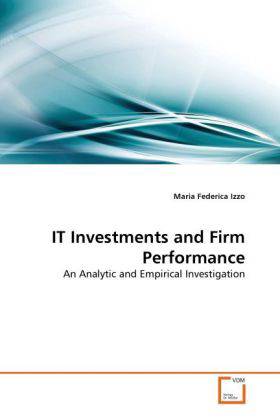
Door een staking bij bpost kan je online bestelling op dit moment iets langer onderweg zijn dan voorzien. Dringend iets nodig? Onze winkels ontvangen jou met open armen!
- Afhalen na 1 uur in een winkel met voorraad
- Gratis thuislevering in België vanaf € 30
- Ruim aanbod met 7 miljoen producten
Door een staking bij bpost kan je online bestelling op dit moment iets langer onderweg zijn dan voorzien. Dringend iets nodig? Onze winkels ontvangen jou met open armen!
- Afhalen na 1 uur in een winkel met voorraad
- Gratis thuislevering in België vanaf € 30
- Ruim aanbod met 7 miljoen producten
Zoeken
Omschrijving
The recent trends in the modern competitive arena (globalization, Information Technology centred economies and budget constraints forced by the financial crisis) make the evaluation of IT investments' concrete effects a more urgent issue than ever. As organizations continue to invest significant amounts of capital into IT, research studies report contradictory findings on the relationship between IT investments and organizational productivity and performance. It is therefore not surprising to see that the IT productivity paradox is receiving increasing attention from researchers and practitioners in the new information-based economy. This work explains why IT does matter and why it is an essential ingredient in long-term business success and not merely a commodity that adds little to the firm's ability to thrive. Through different steps and different paths that link IT decisions, IT changes, capabilities and process performance we demonstrate that IT drives growth and, finally, it can have a measurable impact on financial performance.
Specificaties
Betrokkenen
- Auteur(s):
- Uitgeverij:
Inhoud
- Aantal bladzijden:
- 224
- Taal:
- Engels
Eigenschappen
- Productcode (EAN):
- 9783639301342
- Verschijningsdatum:
- 26/10/2010
- Uitvoering:
- Paperback
- Formaat:
- Trade paperback (VS)
- Afmetingen:
- 152 mm x 229 mm
- Gewicht:
- 335 g

Alleen bij Standaard Boekhandel
+ 155 punten op je klantenkaart van Standaard Boekhandel
Beoordelingen
We publiceren alleen reviews die voldoen aan de voorwaarden voor reviews. Bekijk onze voorwaarden voor reviews.











